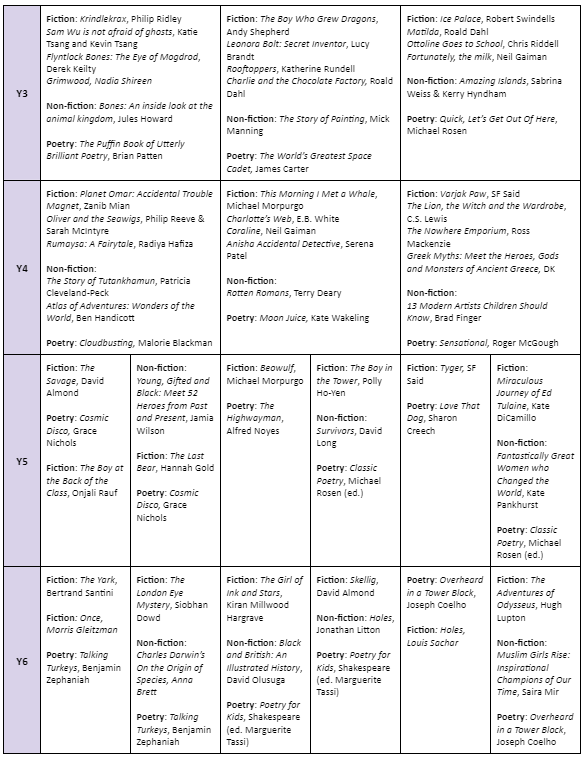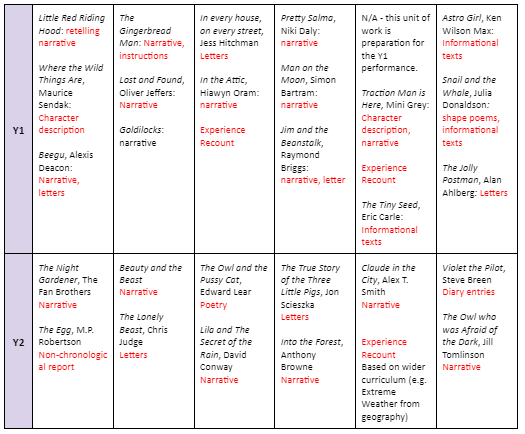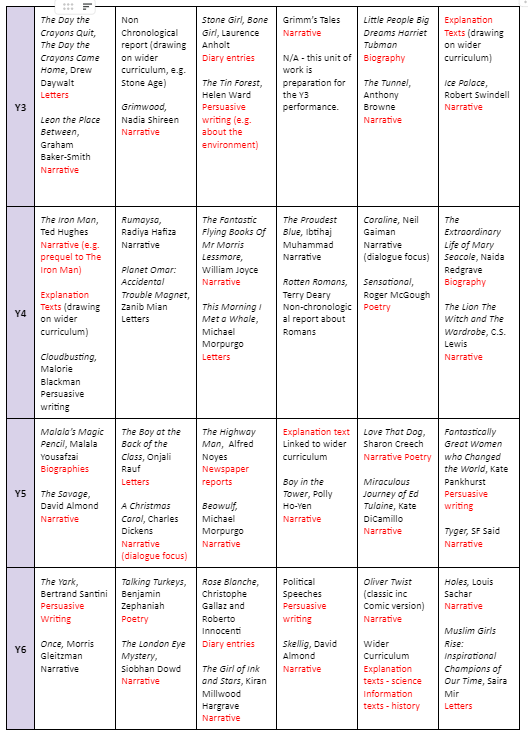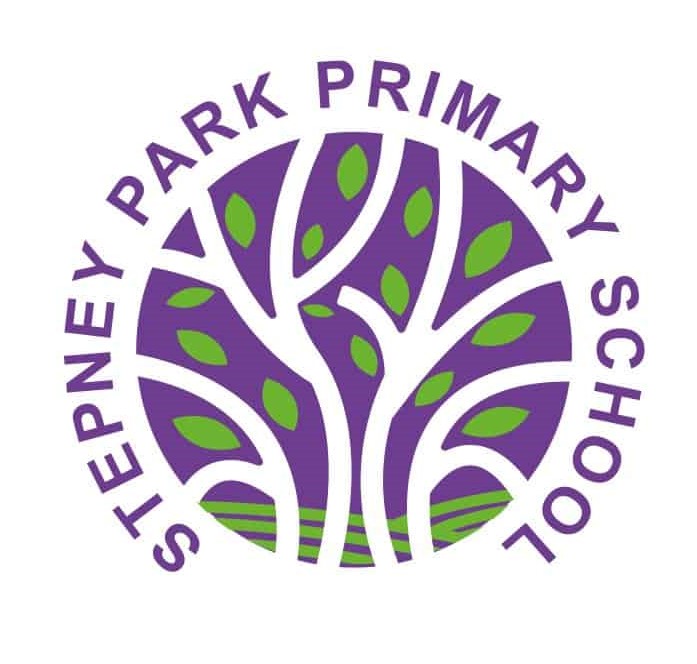English
Aims: Reading
Ensuring children leave primary school literate and confident about their reading and writing is one of our primary functions as a school. At Stepney Park, we understand this to mean children achieve four broad aims in reading:
- Children acquire the phonic knowledge necessary for decoding to become automatic and for reading to become easy and fluent.
- Children develop their reading comprehension and, through engagement with a broad range of texts, are increasingly able to understand what they read.
- Children develop the habit of reading both for pleasure and for information.
- As we know some of our children enter school with a relatively narrow vocabulary, we make a particular effort to broaden children’s vocabulary as they move through the school.
Our Reading Strategy
Our reading strategy consists of three broad strands: early reading, developing reading and a wider reading culture. Each of these strands is, in turn, made up of a range of approaches that, taken together, ensure children learn to read well at Stepney Park.
-
Early reading. Here the focus is on phonics, working towards being able to decode automatically and fluently. At this stage, we also aim to enthuse children about books and reading by reading a very wide range of stories and other texts to and with them. This part of our reading strategy generally covers children in EYFS, year 1 and year 2, as well as some older children, for example if they are new to English.
-
Developing reading. Once children have a secure grasp of phonics, they continue to develop their reading with a focus on fluency. They read very widely, including a range of fiction, non-fiction and poetry, to build their vocabulary and promote a love of reading. There is also a focus on reading comprehension and close reading with our older children. This includes discussions about plot, character and themes in novels, as well as about writers’ use of language and why they may have made particular choices. This part of our reading strategy generally covers children in years 3-6.
- Wider Reading Culture. In addition to our early reading and developing reading strategies, which seek to equip children with the skills and knowledge they need to read, at Stepney Park we also aim to develop a reading culture. This seeks to promote reading for pleasure and to support children in becoming lifelong readers using a range of approaches.
More about Early Reading
Early reading is a major priority at Stepney Park: ensuring children become competent readers is at the heart of what we do and we know that a successful early reading programme is an essential part of this aim. For phonics, we use the Tower Hamlets Education Partnership’s phonics programme, which has been accredited by the Department for Education. Children also benefit from extensive decoding practice in guided reading sessions. We run sessions in school for parents to find out more about supporting learning phonics at home. These take place in a small group with an adult and the books that children read are matched to the phonics sounds they have learnt. Our early reading strategy generally covers EYFS and key stage 1, though it includes older children where necessary:
-
Nursery. Phase 1 of Letters and Sounds is used to prepare children for the beginning of the THEP phonics programme, which children may start if they are ready towards the end of nursery. In addition, staff read to children daily to build their vocabulary and enjoyment of reading.
-
Reception. The THEP phonics programme begins with daily teaching as soon as possible in children’s first term in reception, usually within the first weeks. Once children have learnt the first set of sounds, guided reading sessions begin. Children benefit from several of these sessions a week, which offer extensive decoding practice. In addition, staff read to children daily to build their vocabulary and enjoyment of reading.
-
Year 1. The THEP phonics programme continues with daily phonics teaching. Children also benefit from daily guided reading, which offers extensive decoding practice while also ensuring children understand what they are reading. Guided reading in key stage 1 is a major priority: we redeploy support staff from across the school so that every group has an adult to support them every day. This provision is supplemented by a daily story time in which the teacher reads aloud to the class.
-
Year 2. The THEP phonics programme continues for any children who do not pass the Phonics Screening Check in year 1. Other children have a phonics review for a number of weeks before moving onto No Nonsense Spelling. Daily guided reading sessions with an adult continue into year 2. This extensive practice supports children to become increasingly fluent, while daily conversations about what they are reading also develop their comprehension of the written word. This provision is supplemented by a daily story time in which the teacher reads aloud to the class.
-
Key Stage 2. In a small minority of cases, our early reading strategy supports children in key stage 2. This may be where they have significant SEND or are new to English. This may take the form of phonics groups or 1:1 reading to develop fluency.
More about our Developing Reading
Our strategy for developing readers is designed for children with a secure knowledge of phonics and relatively fluent decoding skills. There are three main approaches taken across key stage 2, all of which are taught in a whole-class context, though the volume of these varies. Firstly, in extended reading sessions, a combination of modelled reading by the teacher and independent reading are combined with rich discussion about the text. Secondly, fluency practice seeks to develop children’s fluency, intonation and prosody explicitly; they work on reading aloud smoothly and at an appropriate speed. Finally, close reading focusses on a smaller section of text in detail and offers children the opportunities to practise written responses to text.
-
Year 3. In year 3, four reading lessons are dedicated to extended reading, with a significant proportion of modelled reading. This ensures children read very extensively over the year, significantly broadening their vocabulary. One reading session a week is for fluency practice.
-
Year 4. In year 4, extended reading continues for 3 sessions a week, with the amount of independent reading gradually increasing over the year. Year 4 also benefit from one session of fluency practice and one session of close reading. The latter begins at some point in the Autumn term.
-
Years 5 and 6. Children in years 5 and 6 have 3 or 4 extended reading sessions a week, and 1 or 2 close reading sessions a week. This seeks to achieve a balance between reading extensively and building vocabulary while also considering shorter passages in depth and, for example, examining their use of language in finer detail.
More about our Reading Culture
In addition to our early reading and developing reading strategies, which seek to equip children with the skills and knowledge they need to read, at Stepney Park we also aim to develop a reading culture. This seeks to promote reading for pleasure and to support children in becoming lifelong readers using a range of approaches:
-
Modelled reading. All children in every class in the school benefit from regular, generally daily, modelled reading by an adult. We believe that this time to enjoy a text significantly boosts children’s enjoyment of reading.
-
Range of texts. Our curriculum includes a wide range of texts, including non-fiction and poetry every term, in addition to a range of fiction genres. We believe the richness of this selection promotes a reading culture by showing children the breadth of what is available for them to read.
-
Home Reading. The school supports children to read at home to supplement their reading in school. Early readers take home a book that matches their level of phonics knowledge and a second text, which they are free to choose, the intention of which is to read and enjoy with family. Developing readers choose a book from their class library. Teachers support children to select books that will be appropriately challenging, for example by making recommendations.
-
Class Libraries. Our class libraries are stocked with specially selected books (for example, sequels to books on our curriculum and other texts by the same author). This allows us to capitalise on children’s enjoyment of reading lessons.
-
Visibility of texts and reading. We have sought to ensure books and reading are visible around the school to highlight the importance of reading to children.



Reading Overview
This overview only includes key stage 2 as younger children read a very wide range of decodable books until their decoding becomes automatic.


Aims: Writing
Strong writing skills are essential not only to children’s education now and in the future, but also to their success in the workplace and more widely. At Stepney Park, we have three broad aims for children’s writing:
-
Accuracy. Children develop the knowledge and skills required to write accurately with regard to spelling, punctuation and grammar.
-
Effective written communication. Children learn to express themselves in writing clearly and coherently, adapting their language and style for the context, purpose and audience at hand.
-
Breadth of vocabulary. Some of our children arrive at school with a relatively narrow vocabulary. As such, one of the core aims of our English curriculum is to build children’s vocabulary.


Our Writing Curriculum
We want our writing curriculum to offer children opportunities both to show and to develop their creativity. As such, the curriculum is structured around a range of stimuli, including a fantastic range of texts that inspire children’s own writing. Sometimes these are the same texts that children read in reading lessons, while other times they are different to add to the range of stories children become familiar with. In addition, our writing ensures that children have opportunities to write across a range of genres, for different audiences and for different purposes in each year group.
We have mapped out the various skills that children need to develop across the school. This means that there are generally only two or three new skills (e.g. using speech marks or fronted adverbials) for children to learn each term. This allows for regular repetition and practice of previously learning so that children become secure in their writing skills. At Stepney Park, we have a particular emphasis on sentence structure in our writing curriculum. This is because sentences are the building blocks of all writing and, as such, sentence structure is particularly essential for children to master before they leave primary school.



Teaching Writing
We believe that children's talk is a key factor in their ability to write and, as such, we prioritise children's talk and oracy to develop their writing, alongside drama, drawing and experiences.
Children's writing skills are developed progressively as they move through the school. Each unit has a main writing outcome which will be developed over the week. There are also opportunities for other short writing experiences across the units in order to develop comprehension and specific spelling and grammar foci - these might include: postcards; setting descriptions; diary entries; letters; adverts; character descriptions. Extended writing each week in years 2-6 also allows for the interleaving and retrieval of previously taught genres in order to consolidate these.

Writing Overview



